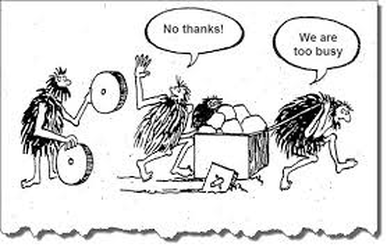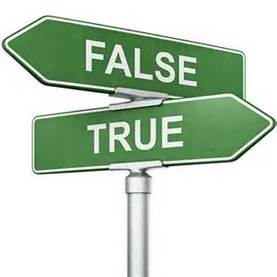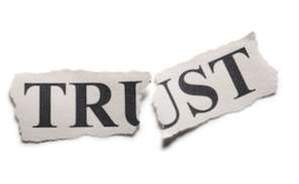
Why are decisions so difficult to make?
| Private Counseling |
|
BLOG
Appointments:
Monday - Thursday:
morning and afternoon appointments
 Have you ever faced a crossroads? You know a decision must be met, but you stare at your options without movement. You want to make a choice. You can make a choice. You know your options. You’ve weighed the pros and cons. But, still, the decision is tough to commit to, to finalize, to put into action. Does this sound familiar to you? It sure resonates with me! Why are decisions so difficult to make?
1 Comment
It is not a surprise to anyone that the 2016 Presidential campaigns and election season is unique. I personally avoided watching the first debate because the conflict makes me uncomfortable. I did, however, watch the second Presidential debate last night because I felt it was important to be informed and engaged. After all, I’m lucky enough to be an American citizen with the perk of democratic voting. While watching, and cringing, I was repeatedly concerned about the future: the future of our great country… my personal future, both financial and physical safety… and the future of our youths.
My thoughts are: will the voting on November 8, 2016 lean towards 1) Party line 2) Personal views of the Candidate or 3) for the future of all People? Have you dismissed someone's idea or opinion because you KNOW you are right? Sure, we all have. Sometimes, there is a right answer: 2 + 2 (always) = 4. But other times, more than one opinion, or perspective, can also be correct: What color is the sky? Answers vary. So, why is it human nature to need to be right? What reward does it give the individual?
You’ve been hurt. You are in pain. You feel sad and angry and confused and shocked and millions of other emotions that are hitting you like a wave. You reach out for a life preserver but end up thrashing in the waves. You just want life to return to “normal,” whatever that is. You might be suffering from loss of a loved one due to death or lost romantic love or a misunderstanding that escalated to termination. No matter where your pain stems from, you don’t like it. In fact, you might hate it. The pain seems unnecessary and unjust and mean. You yell at God. You cry. You search for the answer to the word “why?” Nothing is helping.
 A TalkSpace Blog (edited for Private Counseling): Therapy is about as affordable as the Mercedes that cut you off on the freeway the other day. This is unfortunate for people who have looked past the stigma of therapy and committed to living happier lives but can’t afford the therapist’s rates. The average therapy session costs $75-150 an hour, and good luck if you live in a place like New York where the range jumps to $200-300. People who rail against therapy accuse therapists of being greedy, but therapists actually have valid reasons for their high prices. Nonetheless, don’t believe you are stuck paying for therapy you can’t afford. Learning why it is expensive is the first step towards searching for alternatives and paths towards affordable therapy. Becoming a Therapist Costs a Ton of MoneyThink about how expensive it is to hire a lawyer. Clients are hiring someone with years of schooling on the subject in which they invested hundreds of thousands of dollars. It’s the same deal for a therapist — most therapists have postgraduate education and many have a Ph.D. — but misconceptions about therapy prevent people from seeing it this way. Remember, you are not paying to chat with a friend. You are hiring a mental health professional. Therapists Don’t Get Paid for Every Hour They Work. When people work a typical 40-hour week, their company pays them for every hour they work. Therapists, on the other hand, can only bill for the time they see clients.  You are busy. Traffic is horrible. Or, you live too far away from quality therapeutic care. You need help with your anxiety or depression or relationship or anger or kids or ... all of the above! You need the help of a professional counselor who is willing and able to listen, understand, and support you with your current problems. You need solutions. You need guidance. You need help. The modality for receiving mental health therapy is changing. You need convenient, but quality, therapy options. With Private Counseling and licensed professional counselor Bree Winkler, you will receive both! View the video for exciting new options for all GA residents! For more information, visit www.PrivateCounselingGA.com Contact Bree today to schedule your initial session!
By Bree Winkler, EdS, LPC, CAMSTherapy sessions are conducted in the privacy and convenience of your home. Don't spend another minute trying to appear calm and collected when you are really struggling internally. Bree is a licensed professional counselor who provides mental health counseling in Atlanta, GA.
 By Bree Winkler, EdS, LPC, CAMS www.PrivateCounselingGA.com Have you ever caught yourself saying hurtful things… to yourself? Sometimes we reprimand ourselves for a small error. For example, after being pulled over for speeding in the car, I might say, sarcastically “Good job, Bree. Now you have to pay a fine.” However, sometimes the things we say to ourselves are more deeply rooted. For example, with the same scenario above, I could also say to myself “I am so stupid. I never do anything right.” A false belief is a fear of the emotional pain that results from believing something negative about our self. The lack of core/basic needs are the root causes of the false belief statements. When you doubt your ability to have or receive core needs or desires (love, belonging, success, or self-worth), you begin to use negative statements to talk to yourself. Ultimately, these statements become truth to you. Here are some examples of False Belief statements based on Core Needs:
 By Bree Winkler, EdS, LPC, CAMS People confide in me every day. They share their deepest secrets, fears, worries, and embarrassments. They are seeking empathy, reassurance, and guidance. It’s my passion and my job to listen confidentially, give support, and offer help. Overall, I’ve been a great therapist (and friend). Because of this, I know that asking for help and trusting others is effective for healing. So, why is it so difficult for me to ask for help and trust others??? One definition of TRUST is “confident expectation of something; hope.” Hope and expectations can breed fear if not met with support and commitment. I spoke to other Type-A, independent professionals and they agreed with my concerns. There are a lot of reasons why people fear asking for help: By Bree Winkler, EdS, LPC, CAMS |
Bree Winkler, LPC, Ed.SMy goal is to help you use coping skills, change thoughts, and manage behaviors in order to decrease anxiety and depression symptoms. Archives
March 2022
Categories
All
|